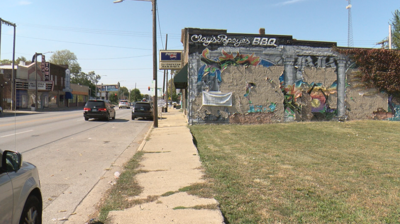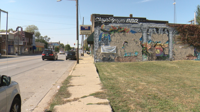SPRINGFIELD, Ill. � Only 21% of Illinoisans who applied for Business Interruption Grants received funds from the state. Members of the Senate Commerce Committee received countless phone calls and messages from business owners who didn’t receive funding. Thursday, they demanded transparency from officials who evaluated the applications.
The Illinois Department of Commerce and Economic Opportunity received 42,000 applications from small businesses. But, the agency gave out 8,974 awards totaling $276 million. DCEO only had $580 million for the program. Officials said half of that funding went to childcare centers. The department distributed 35% of the BIG grants to downstate businesses. They noted 40% of the rewards went to minority-owned businesses. Still, senators were concerned many owners in their districts that were eligible didn’t receive a grant.
“Most of the people who I have in my district who did apply simply received letters in December that said the money was all gone,� said Sen. Don DeWitte (R-St. Charles). “They got virtually no communication as to why their application was denied, overlooked, or if it was even processed to begin with.�
DeWitte said he personally struggled to get information from DCEO about the status of applications for grants. Still, officials explained top applicants made less than $1 million annually in areas disproportionately impacted by COVID-19 or industries hit hardest by the pandemic.
“I think we want to improve on the transparency in cases where businesses may be on a lower priority group, so they are strictly eligible,� said Cara Bader, DCEO Chief of Staff. “But, we have to wait to determine how many other businesses may be applying to meet those equity goals.�
Lack of diversity
Sen. Napoleon Harris III (D-Flossmoor) said he was disappointed with the diversity breakdown for grant winners. 37% of the grants went to women-owned businesses and Asian businesses received 17% of the awards. But, only 12% went to Black businesses and 9% went to Latinx business owners. Harris called the distribution dismal, especially for minority communities hardest hit by COVID-19.
“I think that’s something that needs to be looked at when you’re talking about rebuilding and restoring businesses. I’m not saying others don’t need the support,� Harris emphasized. “But, those dollars should’ve helped or been directed in those communities based upon the way that COVID-19 has really dismantled businesses and impacted communities of color.�
Bader noted DCEO reviewed businesses meeting multiple priority factors first. Then, officials would move down the list to review applications that may have only met one or two factors “as time and funding allowed.�
DCEO hasn’t clawed back funds
Senators were also curious to see how DCEO addressed businesses that received grants but failed to follow public health guidelines set by the Pritzker administration.
“Some were cited once by the public health department and then quickly became compliant,� explained Sen. Steve Stadelman (D-Rockford). “But, there are other situations where they were notified seven or eight times. Do you have a threshold as far as what lacks of compliance would put a business into a possible clawback situation?�
The department says there’s no threshold set for the number of reports a business could have for non-compliance. In fact, Bader explained DCEO hasn’t clawed back funds from any businesses at this point. However, the agency has initiated actions for compliance for dozens of prospective grant winners.
Small business advocates also demanded a seat at the table when Illinois creates programs like this. They still feel state officials should have business owners included in the decision-making process. Elliot Richardson, President of the Small Business Advocacy Council, says businesses need to understand the process and feel heard.
“These programs are lifelines. They’re literally lifelines,� said Richardson added. “These businesses are waiting for months to find out whether or not they’re going to be able to access money to keep their doors open. I echo all the appreciation for what the department has done. This is just sorta putting yourself in the position of that small business owner that has to pay rent.�














